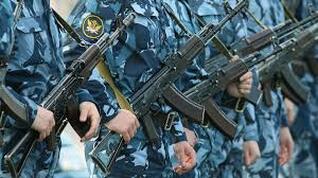 So, Ukraine may soon be at war once again. Over 100,000 Russian troops are massing at the Ukrainian border, including in Belarus – just a few miles from the Ukrainian capital, Kiev. The Americans are piling weapons into the country and pulling out their diplomats, Nato is reinforcing its eastern borders, and Israel is preparing for another mass wave of immigration by Ukrainian Jews. Linked to Russia by centuries of history, and an economic powerhouse of the Soviet Union thanks to its agriculture, coal and heavy industry, Ukraine has changed enormously since gaining independence in 1991. When I first visited, in January 1992, Kiev was a drab, grey Soviet city, its beauty masked by leaden skies and decades of stagnation. The streets were covered in snow – lovely in the early morning after an overnight flurry, but later slushy and treacherous with ice. There were few opportunities to escape the cold – pleasant ones at least. My friend and I ducked into a restaurant for some respite; it served nothing but cucumbers and garlic, both pickled, and unidentifiable meat and gristle patties, or kotleti. Being vegetarian in the embers of the Soviet Union wasn’t easy. The waitress brought us a sorry-looking bunch of red carnations and indicated two men at the only other occupied table, who wanted to give them to us. We declined. They started shouting. It all got a bit nasty and we left as quickly as we could. That was not an unusual experience at the time. Today Kiev is a thriving city with a young, highly educated population, tech savvy industries and a wealth of eateries serving cuisines from all over the world. It looks to the west, rather than the east, after the hard-won popular uprising of 2013-14 – the Revolution of Dignity – which deposed the pro-Russian president Viktor Yanukovych. That brutal three-month stand-off brought tens of thousands of protestors to Kiev’s central Independence Square, or Maidan, in sub-zero temperatures. It began as a demonstration against the president’s refusal to sign an agreement with the European Union to enable greater rapprochement, and ended in all-out war against a government rife with corruption and cronyism that used horrifying violence against peaceful protestors. More than 100 people died during the conflict. I am currently immersed in the events of that winter, which form the backdrop to part of my half-finished novel. Russia took its revenge for Ukraine’s reorientation to the west with the annexation of Crimea and by fostering war in the Donbas region of eastern Ukraine, which has killed around 14,000 people, some 3,000 of them civilians caught in the crossfire. Over a million residents of eastern Ukraine have been forced to leave their homes. The conflict led to the downing of a Malaysia Airlines flight in July 2014 by pro-Russian separatist fighters, killing all 298 people on board. The war has continued to rumble on inconclusively ever since, with sporadic outbreaks of violence. Russian president Vladimir Putin has always denied Russian military involvement in Crimea and the Donbas. Ukrainians referred to the armed troops piling into Crimea in February-March 2014 as “little green men”. Putin insisted the little green men were local self-defence groups – who just happened to be wearing Russian army uniforms – and had nothing to do with him. In the warring Donbas, he put responsibility firmly at the feet of pro-Russian separatists in Ukraine and insisted any Russian nationals in the rebel-held region were there on a purely voluntary basis. Western countries have always accused Russia of providing troops, equipment and funding to the separatists and have sanctioned Moscow over its role in the conflict. Indeed, the presence of Russian troops was proven during a recent unrelated court case. Fast-forward to today and Putin is making no denials about the troops massed on Ukraine’s borders. The increasing militarisation is bringing the possibility of war in Europe ever closer. But the Russian leader has always been unpredictable and his intentions are very difficult to second guess. Destabilising an increasingly western-oriented democracy on his doorstep – in a country he considers within Russia’s sphere of influence – has long been his intention. If Ukraine is allowed to thrive, his worst nightmare could come true – Nato and the European Union wielding influence right on his doorstep. What form this war may take is anyone’s guess. Hybrid warfare is already well underway with a cyber-attack on Ukrainian government websites earlier this month and warnings of a “false flag” operation by Russian saboteurs in the country to create a pretext for an attack. There is talk of a Russian puppet-leader – former Ukrainian MP Yevhen Murayev – waiting in the wings to replace President Volodymyr Zelensky. Another politician named in the alleged plot is Mykola Azarov, formerly Ukraine’s prime minister under Yanukovych. Ukraine and the West will have to wait and see what Putin decides to do next. We may not have to wait very long.
0 Comments
Leave a Reply. |
Keeping stories aliveThis blog aims to discuss historical events relating to the Jewish communities of Ukraine, and of Eastern Europe more widely. As a storyteller, I hope to keep alive stories of the past and remember those who told or experienced them. Like so many others, I am deeply troubled by the war in Ukraine and for the foreseeable future, most articles published here will focus on the war, with an emphasis on parallels with other tumultuous periods in Ukraine's tragic history. Archives
March 2024
Categories
All
|
 RSS Feed
RSS Feed
